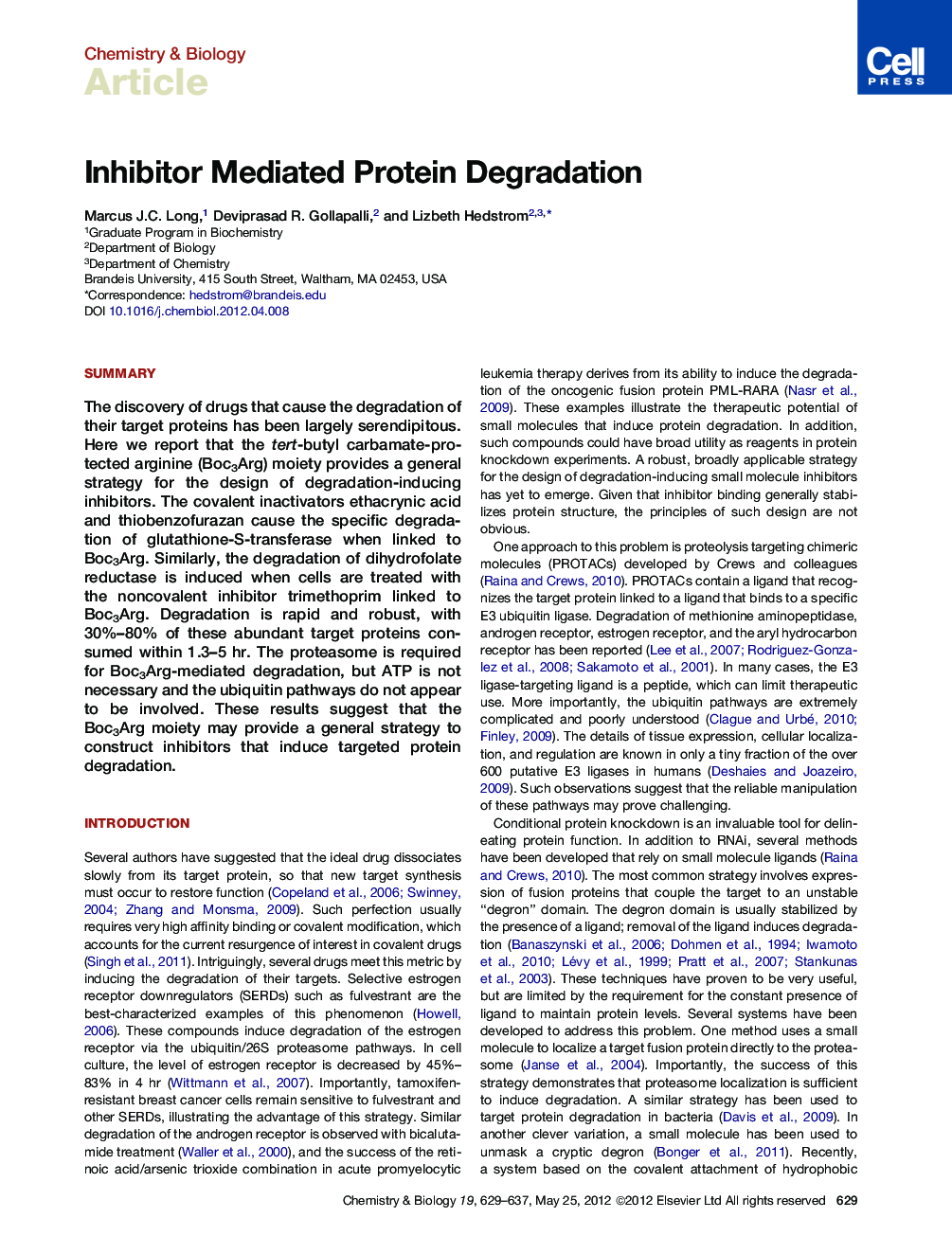| Article ID | Journal | Published Year | Pages | File Type |
|---|---|---|---|---|
| 1391313 | Chemistry & Biology | 2012 | 9 Pages |
SummaryThe discovery of drugs that cause the degradation of their target proteins has been largely serendipitous. Here we report that the tert-butyl carbamate-protected arginine (Boc3Arg) moiety provides a general strategy for the design of degradation-inducing inhibitors. The covalent inactivators ethacrynic acid and thiobenzofurazan cause the specific degradation of glutathione-S-transferase when linked to Boc3Arg. Similarly, the degradation of dihydrofolate reductase is induced when cells are treated with the noncovalent inhibitor trimethoprim linked to Boc3Arg. Degradation is rapid and robust, with 30%–80% of these abundant target proteins consumed within 1.3–5 hr. The proteasome is required for Boc3Arg-mediated degradation, but ATP is not necessary and the ubiquitin pathways do not appear to be involved. These results suggest that the Boc3Arg moiety may provide a general strategy to construct inhibitors that induce targeted protein degradation.
Graphical AbstractFigure optionsDownload full-size imageDownload high-quality image (182 K)Download as PowerPoint slideHighlights► Two Boc3Arg-linked covalent inhibitors induce degradation of GST proteins in cells ► A Boc3Arg-linked noncovalent inhibitor induces degradation of DHFR in cells ► 30%–80% degradation of the target protein is observed within 1.3–5 hr ► Proteasome inhibitors block targeted degradation, but ubiquitylation is not required
